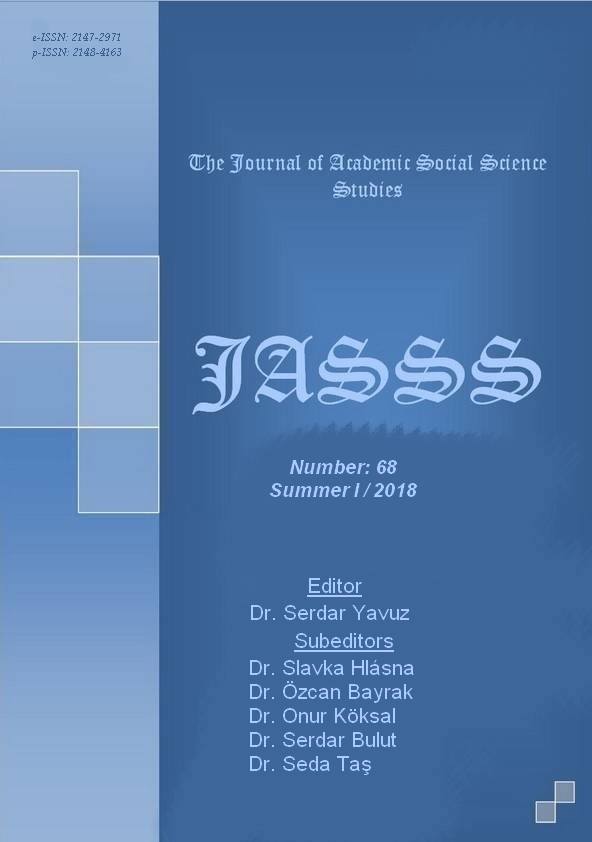Author :
Abstract
John Keats (1795-1821) İngiliz Edebiyatının en önemli şahsiyetlerinden birisidir. Fransız Devrimi ve Sanayi Devrim’inin hemen ardından yaşamış olmasına rağmen, çağının sosyal veya siyasi meseleleriyle pek ilgilenmemiştir. Eserlerinde, daha ziyade, güzelliğe hayranlığı ve diğer herşey gibi güzelliğin de ölümlü olmasından doğan hoşnutsuzluğu önemli yer tutmaktadır. Çok küçük yaşlarda babasının bir kazada ölümü onu ölüm gerçekliği ile tanıştırdı. Daha sonra annesi ve erkek kardeşinin tüberkülozdan ölümüne şahit oldu. Kardeşinin hastalığı boyunca yanındaydı ve günden güne eriyip tükenmesi Keats’in yaşam ve ölümün doğasına ait algı ve duygulanımlarının temelini oluşturuyordu. Kendisi de aynı hastalıktan muzdaripti ve aynı sonun kendisini de beklediğini biliyordu. Nitekim, dayanılmaz acılar içinde genç yaşta yaşama veda etti. Ölümle olan bu trajik ilişkisi kaçınılmaz olarak şiirlerine ve kişisel yazışmalarına yansıdı ve ne gariptir ki onu ölümsüz bir edebi şahsiyet haline getirdi. Bu çalışma, ölüm olgusunun bireyin hayatında merkezi bir öneme sahip olduğunu ve bireyin toplumun sağlıklı bir üyesi olarak yaşamını sürdürebilmesi için bu olguyla yüzleşip kabullenmesi gerekli olan bir olgu olduğunu öne sürmektedir. Çalışma devamla İngiliz Romantik edebiyatının en büyük şahsiyetlerinden biri olan John Keats’in şiirlerinde ve kişisel yazışmalarında ölüme karşı takındığı tutumları metin tahlili yöntemiyle incelemektedir. Bu tutumlar, ölüm korkusu, zamanın geçmesinden duyulan acı, ölüme felsefi açıdan yaklaşma ve ölümü özleme olmak üzere dört başlık altında ele alınacaktır.
Keywords
Abstract
John Keats (1795-1821) is one of the greatest literary figures of English Literature. He lived in the aftermath of the French Revolution and Industrial Revolution. However, unlike most of his contemporaries, he was not much interested in social and political problems of his age. Rather, he was fascinated with beauty and he resented the fact that beauty, like everything else, must die. He was introduced to the reality of death with his father’s death in an accident when he was a small child. Later, he witnessed the death of his mother and brother from tuberculosis. He spent his time with his brother while he was languishing away day by day, which was at the root of Keats’s perceptions on the nature of life and death. He himself had the same disease and knew that the same fate was awaiting him. His tragic relationship with death was inevitably reflected in his poetry and personal correspondence, which ironically made him an immortal literary figure. This paper makes the point that death is a phenomenon which has a very central place in an individual’s life and he or she has to come to terms with it before they can function as a healthy member of the society. The paper goes on to investigate John Keats’ attitudes towards death as exemplified in his poetry and personal correspondance employing the textual analysis method. They will be discussed under four headings: fear of death, the sorrow he feels at the passage of time, philosophizing on death and longing for death.





